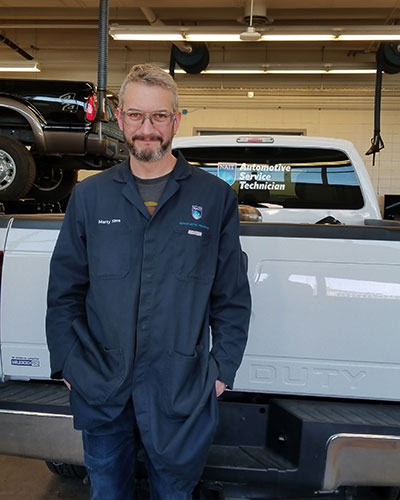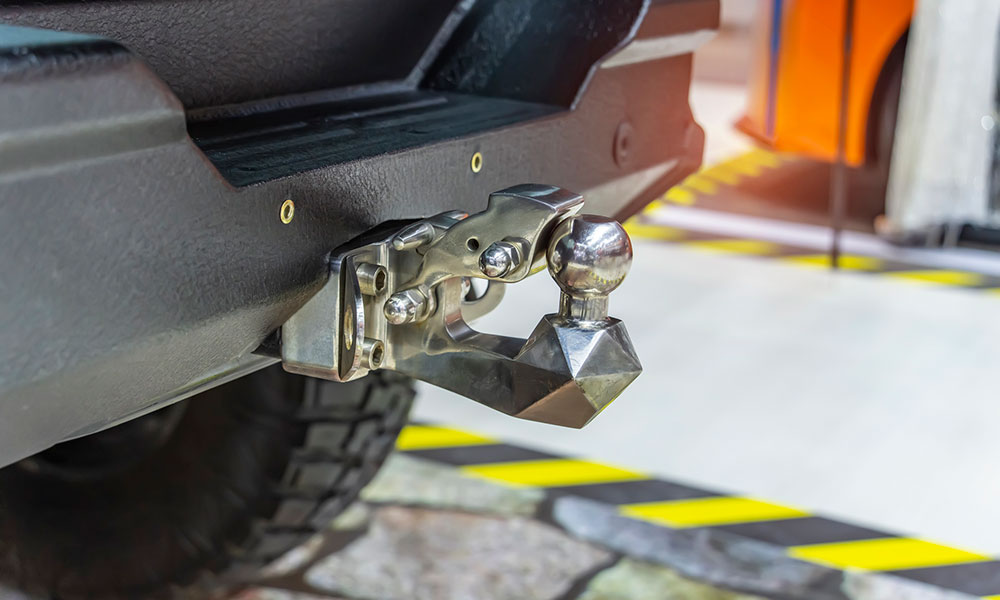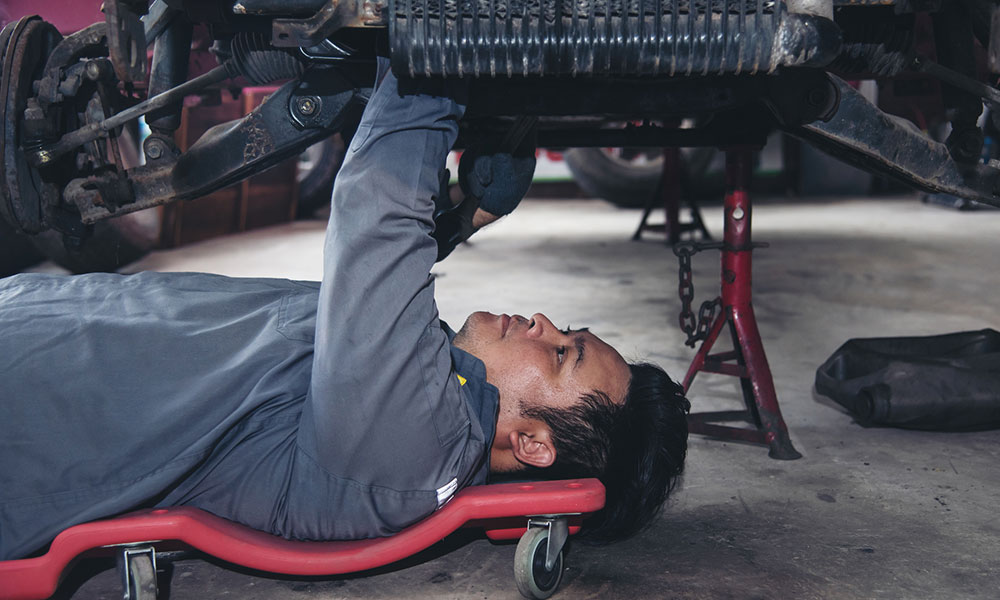Here’s how to navigate the ups and downs of summer
 Courtesy of Automotive Service Technician instructor Marty Sims, here’s an alarming scenario for anyone considering or currently towing a camping (or any other) trailer this summer.
Courtesy of Automotive Service Technician instructor Marty Sims, here’s an alarming scenario for anyone considering or currently towing a camping (or any other) trailer this summer.
Picture yourself making your way along British Columbia’s Coquihalla Highway, a 543-kilometre asphalt roller coaster between Hope and Kamloops. After a long grind uphill, you face the grim reality of gravity.
Suddenly, says Sims (Heavy Equipment Technician ’15), “You're going down a three-kilometre stretch of 2.5% grade that curves at the bottom.”
This is not the time to be questioning whether your truck is up to the task of pulling a 10,000-pound camper – or, more importantly, quickly stopping it if necessary.
Rather, the time for eliminating uncertainty is before hitching up for that summer trip, or before you even shell out for that new unit that an RV salesperson believes you’ll be able to tow.
Since it’s not the salesperson’s responsibility to know one way or another, here is Sims’ advice on ensuring your rig is roadworthy throughout the ups and downs of summers to come.
Read your owner’s manual

“Don’t skim it,” says Sims of this essential guide to your vehicle. “Read it.”
In this case, pay close attention to the section devoted to towing, he adds. It will tell you exactly how much weight your vehicle can safely pull. If there’s any doubt, call your dealer. An online search, says Sims, may not zero in on the specifications of your particular vehicle.
Focus on your weight, not power

Because of the laws of physics, the key factor to focus on is the weight of your vehicle. “It's not the power of the engine,” says Sims.
Sure, you have to be able to get up that Coquihalla hill, but when picking up speed on the other side of it, a heavier truck is less likely to be pushed ahead by the momentum of the trailer.
Watch your tongue

A trailer will exert force in two main directions, Sims points out. As an object otherwise at rest, it will naturally resist against the vehicle, but “there's also a tongue weight.”
The latter pushes downward on the hitch and includes everything between the vehicle’s back bumper and the trailer proper. Your manual will tell you how much your vehicle can bear.
“You also need a hitch that's rated for the towing you're doing,” Sims adds. There are five classes – make sure your choice is up to the task of pulling the weight of your trailer and accommodating the tongue weight.
Don’t load up

Attaching a trailer to your vehicle doesn’t mean you’ve added space to haul countless pieces of camping gear.
“If we put an ATV in the back of the truck and a boat behind the trailer, that all counts,” says Sims. Be sure that your extras (passengers included) don’t put you over the towing capacity cap.
If in doubt, Sims adds, you can always check your total weight at a roadside weigh station.
Do the work that needs to be done – sooner than later

Has your “check engine” light been on for a while? Try to turn it off before hooking up and heading out.
“Make sure that your vehicle is in tip-top shape before you tow,” says Sims. “Get it into a shop [and] bite the bullet and fix the things that need to be fixed.”
In particular, check the brakes, steering, condition of the tires, and system fluids.
“Trailers need maintenance, too,” says Sims. Check that the electrical connection between the vehicle and trailer is sound and, on larger units, that the brakes on the trailer itself are working properly. Also, is the unit’s spare tire still inflated?
But “the most common reason for a trailer to be pulled over is because the axle bearings haven't been serviced or got damaged.” Worst case scenario, this can mean seized wheels. Have the bearings repacked with clean grease every year or two – or “you can do it yourself,” says Sims. “It’s not terribly difficult.”
Whether you handle the checkup yourself or take the trailer to the shop, consider doing it at a time that lets you make the most of the camping season.
“Get it checked out and fixed up in the winter,” says Sims. “When you pull it out in the spring, it's going to be fine.”
Banner image by MCCAIG/istockphoto.com